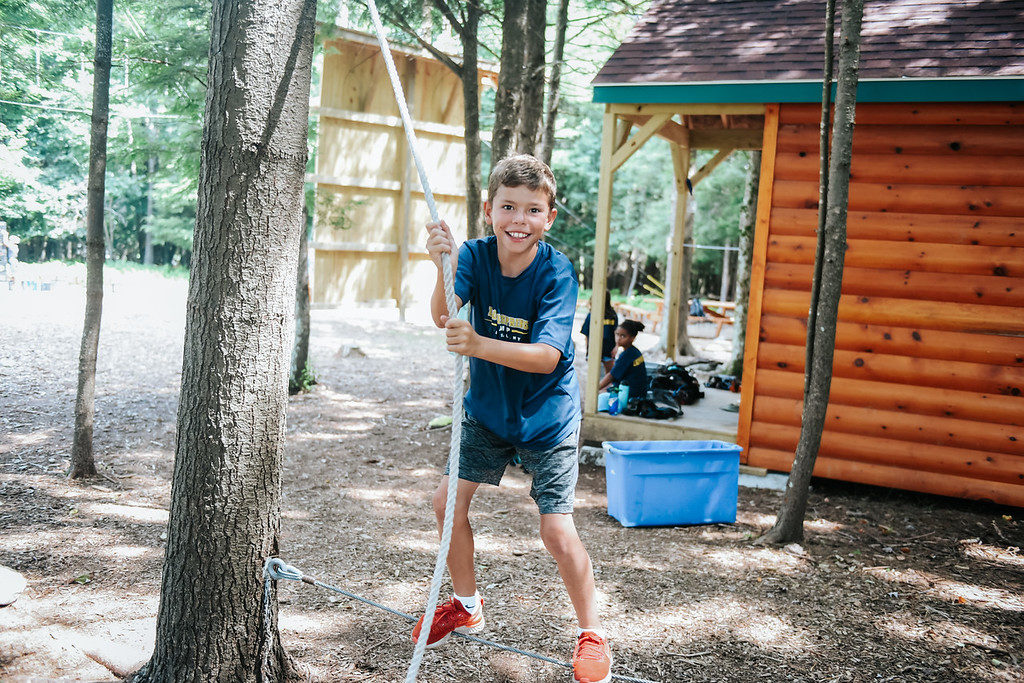Helping Kids Manage Stress
Kids today live increasingly stressful and busy lives compared to previous generations. There is pressure to do well in school, excel in extracurricular activities and community service, be elite athletes, have a strong network of friends, and respond constantly to social media. In addition to their already full schedules, kids take on extra trainings and lessons to further advance their skills and grades, leaving many of them feeling overscheduled and under pressure. With all of these expectations and demands, and constant exposure of social media, one can certainly understand the higher levels of stress this generation is experiencing. Stress is the bodies reaction to a challenge or demanding circumstance, and high levels of it can affect the way a child thinks, acts and feels. Stress can create feelings of anxiety, depression, self-esteem problems, difficulty concentrating, sleep deprivation, and other health issues.

So, what can we do to help this generation of kids manage their stress? We may not be able to change the fast and constant pace things seem to be coming at them, but we can help them develop coping skills to take on their busy worlds. We can teach them to accept that things may not always be comfortable or turn out perfectly, but they can learn to problem solve and manage stress successfully.
Here are some simple tips…
Talk about it. Start a conversation, and listen to what’s going on in your child’s life. A simple conversation with understanding and empathy may relieve some of the stress they are feeling.
Make changes in their schedule. It’s difficult for kids to maintain a schedule where they are always on the go. Cutting back on even one activity could allow for more downtime, which is a great stress reducer. Kids need downtime to just kick back and relax.
Emphasize the importance of sleep. Sleep is vital for minimizing stress and boosting mood. Without enough rest, kids are much less resilient when faced with stress. Keep electronics out of the bedroom to improve quality of sleep.
Accept failure. Let your child know that mistakes will happen and they will recover from failure. Letting kids fail is the best way to help them persevere and manage stressful situations.
Be a good role model. Model healthy coping strategies to manage your own stress. Lead by example. If you had a tough day, it’s ok to talk about why you were upset and how you managed the situation.
Encourage relaxation. Help your child find something that quiets their mind during stressful times. It can be taking a walk, meditation, listening to music, or just deep breathing. It may not look the same for everyone, just help them find something that sticks.
Connect with the people you love. Build a network of friends that help you manage stress in a positive way. Guide your child to connect with friends in real time and not through social media with posts, comments and likes.

Helping kids learn to deal with stress is key to their success and well-being. Stress isn’t always bad, and a certain amount of stress is normal. It can help kids rise to challenges, resolve problems and persevere. Even at summer camp, kids are sometimes faced with stress (being away from home, making new friends, trying new things), but they are learning to problem solve and manage stress in a supportive environment. Summer camp gives kids many of the above-mentioned tips to help them manage their stress. Camp gives kids the perfect environment to have some much-needed downtime, connect with friends in real time, have a manageable schedule, learn from their mistakes in a non-competitive environment, unplug for the summer, and be guided and supported by some of the best role models around. Summer camp also gives kids the opportunity to relax in the great outdoors, surrounded by nature and fresh air, and away from the overload of technology. Camp provides campers with the perfect environment to manage stress not just for the summer, but for a lifetime.

